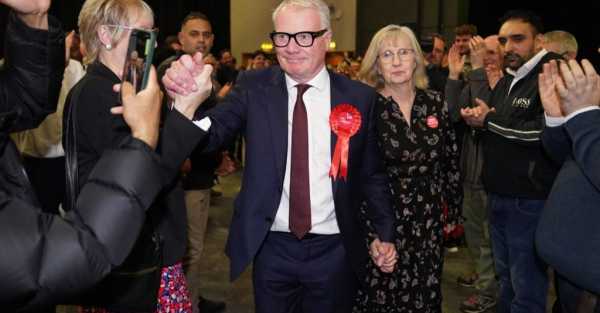
The shock victory of Richard Parker in the West Midlands was the latest in Labour’s domination of this year’s UK mayoral elections.
Tory candidate Andy Street had hoped to cling on in the region, but the Labour challenger beat him with a majority of just 1,508 votes.
Speaking after the result was announced, Mr Parker said that his election shows “people are calling for Labour, and calling for change”.
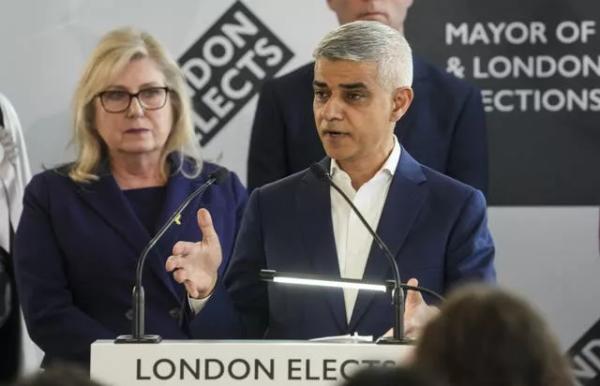
The Conservative loss was part of a double blow for the UK prime minister after Labour’s Sadiq Khan secured a historic third term as Mayor of London.
Mr Khan said “it’s time” for prime minister Rishi Sunak to call a general election.
Labour notched up a string of wins by high-profile incumbents as well as scoring a clean sweep of victories in those parts of the country that were voting for a mayor for the first time.
In the East Midlands, Labour’s Claire Ward became the region’s first elected mayor with a majority of more than 50,000 votes over Tory Ben Bradley – who also sits as MP for Mansfield and leader of Nottinghamshire County Council.
Meanwhile, Labour’s Kim McGuinness won the new North East mayoral election with a majority of 58,399 over independent Jamie Driscoll.
And Labour’s David Skaith won the new York & North Yorkshire mayoral election – which includes the prime minister’s Richmond constituency – with a majority of almost 15,000 over the Conservatives.
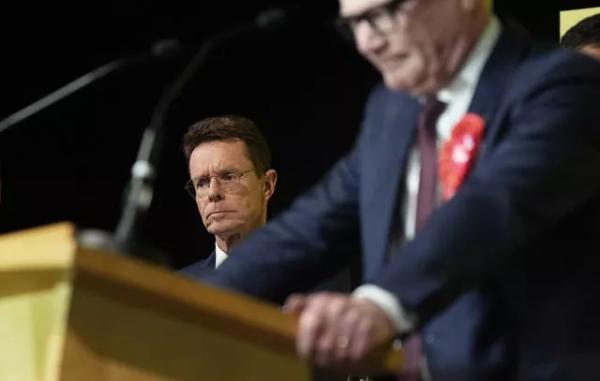
A number of the re-elected Labour mayors took aim at the UK government or called for a general election after the result was announced.
In Liverpool, incumbent Steve Rotheram got 68 per cent of the vote, then urged the prime minister to call a general election, saying “we are ready when you are”.
Andy Burnham said Britain “desperately needs a new Government and a fresh start” after he was re-elected as Greater Manchester Mayor with 63.4 per cent of the vote.
Paul Dennett, who was re-elected as Salford City Mayor with 61.5 per cent of the vote, said the “Westminster and Whitehall model” of governing was “clearly broken and detached from ordinary people’s lives”.
Labour’s Oliver Coppard retained his job as South Yorkshire Mayor with just over 50 per cent of the vote and said he will “join millions of people across the north in calling out this Government for their failure to level up our country”.
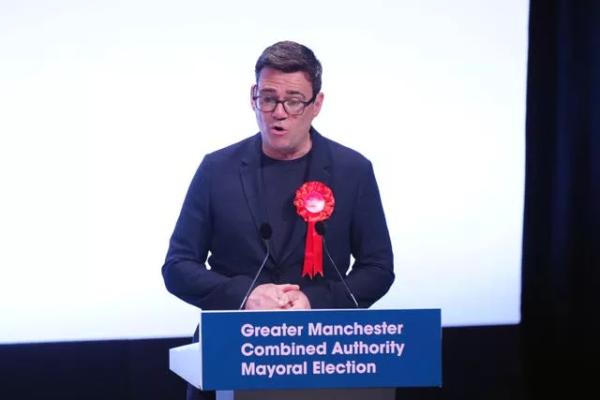
Labour’s Tracy Brabin retained her job as West Yorkshire Mayor after winning more than half of the votes.
In five of the 11 contests, Labour not only finished first but won more than 50 per cent of the vote: This is no mean feat in elections held under the first-past-the-post system, where having multiple candidates on the ballot often means the winner does not end up with over half of the popular vote.
Indeed, this exact scenario happened in the five other mayoral contests won by Labour candidates: London (where Mr Khan got 43.8 per cent of the vote), the North East (41.3 per cent for Ms McGuinness), East Midlands (40.3 per cent for Ms Ward), Birmingham (37.8 per cent for Mr Parker) and York & North Yorkshire (35.1 per cent for Mr Skaith).
Elections for the East Midlands, North East and York & North Yorkshire mayors were being held for the first time, meaning there was no incumbency factor to boost the chances of a particular party.
They also took place in areas that will be key Conservative-Labour battlegrounds at the next general election – particularly the East Midlands which contains a high number of marginal seats.
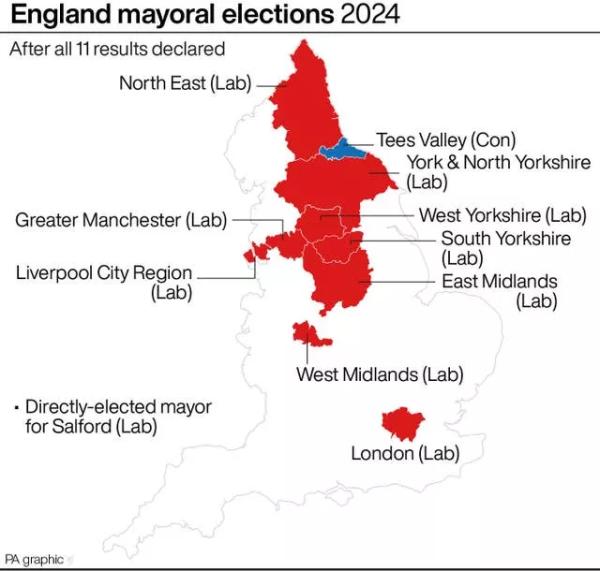
Seen in this context, the sole Tory success in this year’s mayoral contests, the re-election of Ben Houchen in Tees Valley, is very much an outlier, though he did – like most of the other incumbents – manage to win more than half of the vote (53.6 per cent).
Only three candidates stood in the Tees Valley contest – Conservative, Labour and Liberal Democrat – which was the lowest number in any of this year’s mayoral elections.
Labour sources pointed to Lord Houchen’s much-reduced majority, saying the swing against him would be enough to give Labour victory in all the parliamentary seats in the Tees Valley, and claimed he had only managed to win by campaigning as a “pseudo-independent”.
Lord Houchen denied that he had sought to distance himself from Mr Sunak, saying: “People around here know I’m a Conservative.”
Sourse: breakingnews.ie